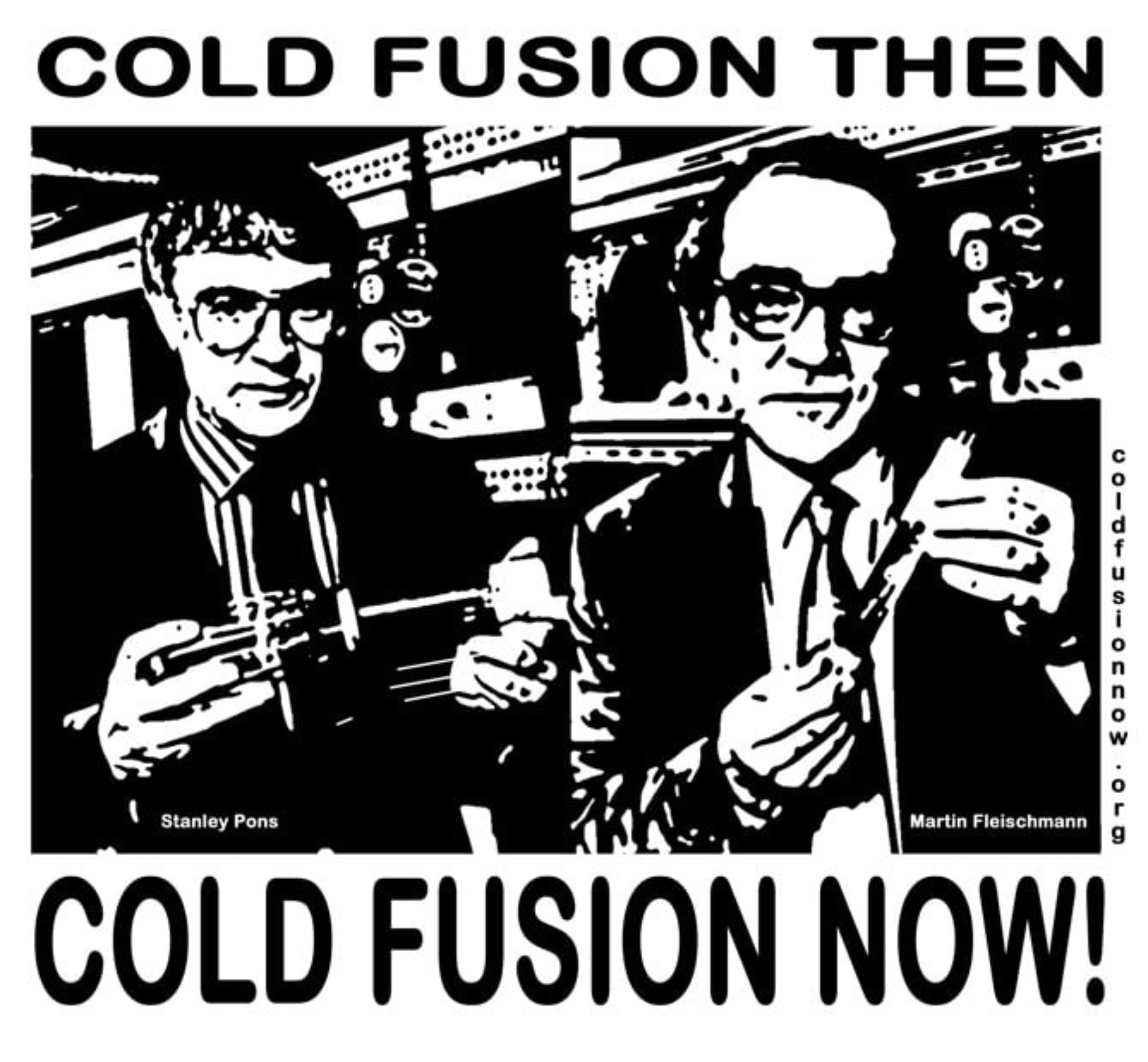Cold fusion deals with elements, isotopes and energy. In other words, it deals with matter and energy, which after all is also a form of matter by E=MC^2. Before thinking of the matter of things, we humans thought just about things. Looking at things, particularly how they are used differently or have different cultural meanings, it is not clear that there is a commonality between, say a rock, a knife, a banner, a pen and a table.
Ancient Greek philosophy allowed that to change and started us talking abstractly about the commonality of all things, which is what we would call matter. That has gone so far that what was once considered certain in antiquity (the human realm) and what was once uncertain (nature), has switched places. People find solace from the certainty of modern science, whereas particularly the spiritual realm (but also ethics and politics), is increasingly thought by many today as being without firm foundations. The demise of the spirit has been much exaggerated, but that is a different story.
One thing that philosophy and the Greeks had going for them is that Ancient Greek is an Indo-European language. Indo-European languages can treat existence as a thing (being), and therefore metaphysics comes naturally to them. Metaphysics, far from being a new age phenomenon, is what allows one to make generalized claims about existence.
Another thing about the ancient Greek language and how it shaped thinking, Greek has a definite article but no indefinite article. In English, the definite article is “the,” while the indefinite article is “a” or “an.” Therefore, in ancient Greek one does not talk about “a rock,” but merely about “rock.” This means that linguistically it was a natural transition for Greeks to talk about [a particular] rock, to talking about [the general nature of] rock. It is not just the brilliance of early philosophers that lead them to start the investigation of what eventually became labeled as matter; the actual structure of the Greek language shaped their discourse.
The examples above sound progressive because they seem to lead to modern science and to us. We like to think that we are the logical conclusion of what has happened in the past. This last example (below) seems backward to us, but I include it because it relates to philosophy and by its strangeness, it shows us how little we understand. Yes, when explained we can see the rationale behind it, but we probably never would have guessed it without being told. It is foreign to how we think of mathematics.
Here is one more example concerning the Greek language and how the Greeks thought. The Pythagoreans considered three to be the first number. One is for the unity of the universe; two is for duality of a pair. For a pair of things, one really does not need to count to acknowledge units in the pair. Three, however, is where we begin to count and therefore, for the Pythagoreans, is the first number.
No, to be honest, it does not quite make sense to me either. But such thinking has its roots in Greek language. In English we have singular and plural, duck and ducks, goose and geese. In Greek, however, there is singular, there is dual for pairs of things, and there is plural. A person does not get to counting until they get into the plural. Perhaps, for ancient Greeks, counting was what made a number a number. We should remember that they did not have negative numbers nor zero. For the Pythagoreans, one and two are not properly numbers, but are the “things” from which numbers are made.
It may have been necessary for the development of theories of matter that the ancient Greek language have certain characteristics, but the presence of such characteristics is not sufficient to explain the origin and direction of Greek philosophy. Language shapes our thinking, but our thinking also shapes our language. There is nothing inevitable about how things turn out. However, understanding a little about how languages work (or don’t work), helps us in imagining a different world than how things seem superficially. Imagining a different world helps us to change what needs to be changed, and to preserve what is already good.
